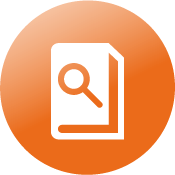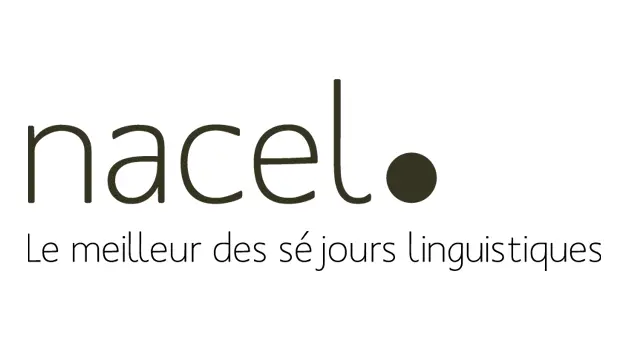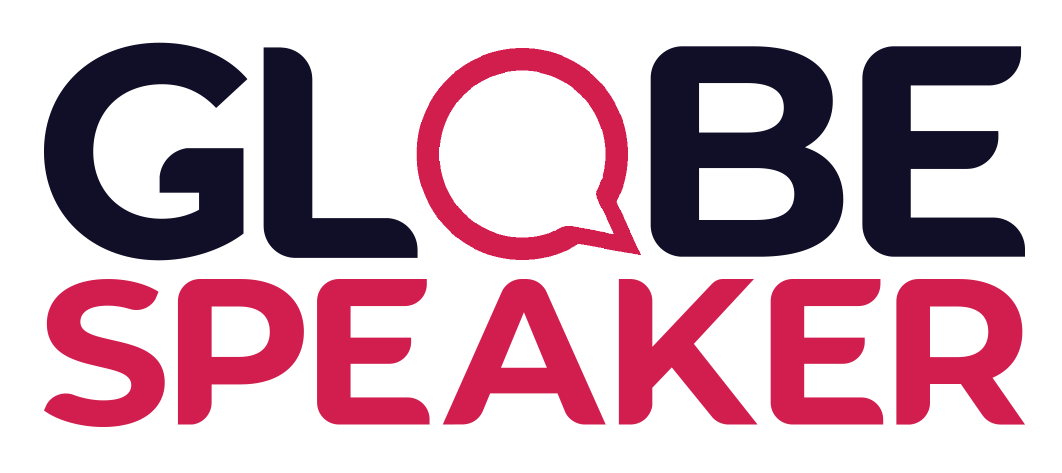
How do I learn Arabic?
 Learn now
Learn now
Summary
of the page
>
1. Start with the Arabic alphabet
>
2 - Learning the basics of Russian
>
3. Learn basic phrases
>
4. Use applications
Pour ceux qui se demandent comment learn arabic here are 10 essential tips to help you get started confidently and effectively. These practical tips, from mastering the alphabet to cultural immersion, are specially designed to simplify your first steps in this enchanting language. your first steps in this spellbinding language. Embark on a learning journey where each step brings you closer to mastery of Arabic, opening the door to a world of new opportunities and discoveries.
 Learning Arabic
Learning Arabic
1. Start with the Arabic alphabet
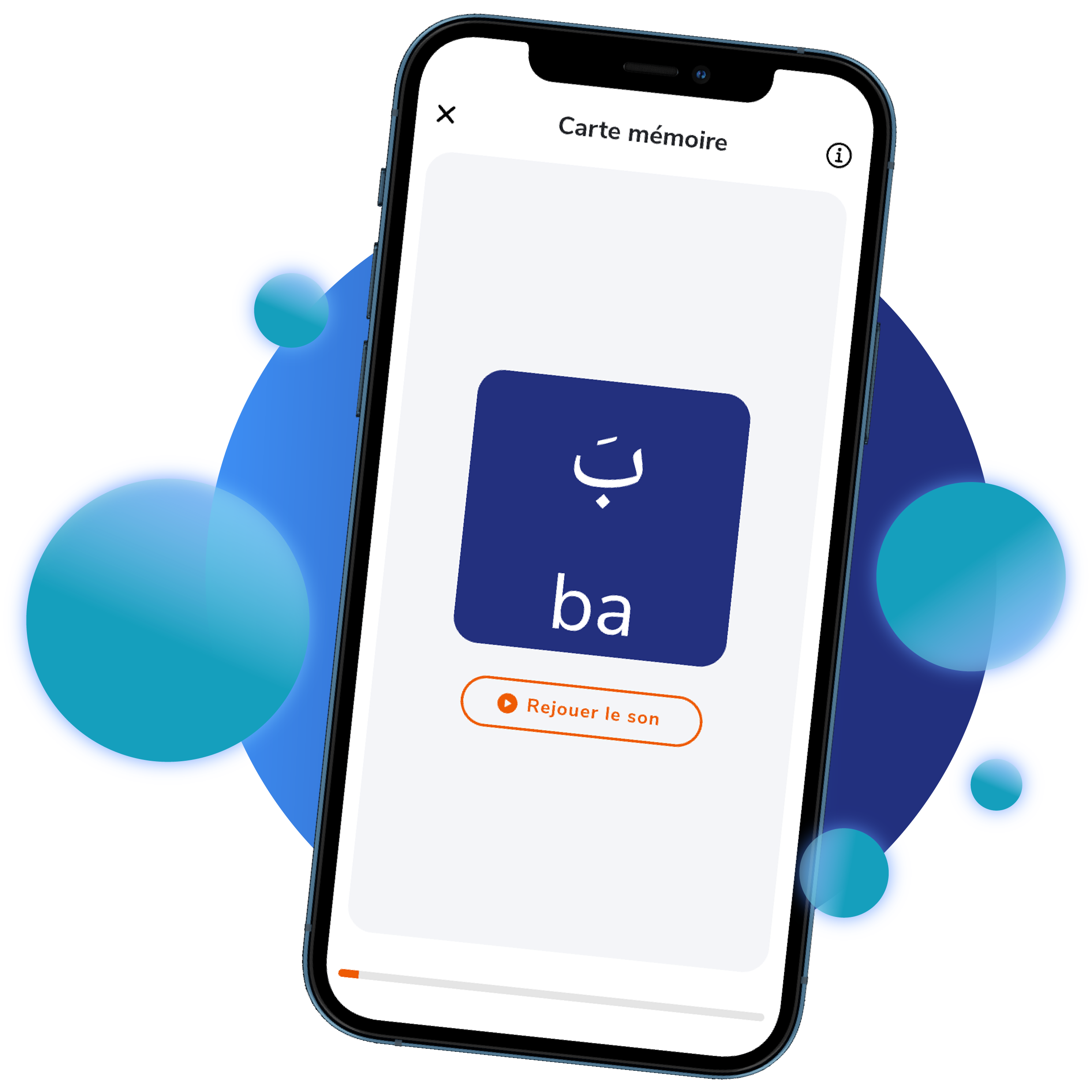
L'une des premières étapes cruciales pour apprendre l'arabe est de se familiariser avec son alphabet unique. Contrairement à l'alphabet latin, l'arabe se compose de 28 lettres, chacune ayant des formes différentes selon sa position dans un mot. Prenez le temps d'apprendre chaque lettre, sa prononciation et ses variantes. Cela peut sembler intimidant au début, mais master the Arabic alphabet est la clé pour déchiffrer et comprendre la langue. Utilisez des cartes mémoire, des applications ou des vidéos éducatives pour rendre cet apprentissage à la fois amusant et efficace. Une fois que vous êtes à l'aise avec l'alphabet, vous aurez posé une fondation solide pour votre voyage dans l'apprentissage de l'arabe.
2. Listen and practise pronunciation
Once you've mastered the alphabet, the next step is to concentrate on pronunciation. Arabic is known for its distinctive sounds, which can be a challenge for new learners. Active listening is essential Immerse yourself in the language by listening to native speakers. This can be through songs, films, podcasts or even recordings of lessons. Repeat what you hear to practise pronunciation and improve your ability to produce these unique sounds. Don't hesitate to record your voice and compare it with that of native speakers to refine your accent. Regular practice is the key to becoming comfortable with Arabic pronunciation.
3. Learn basic phrases
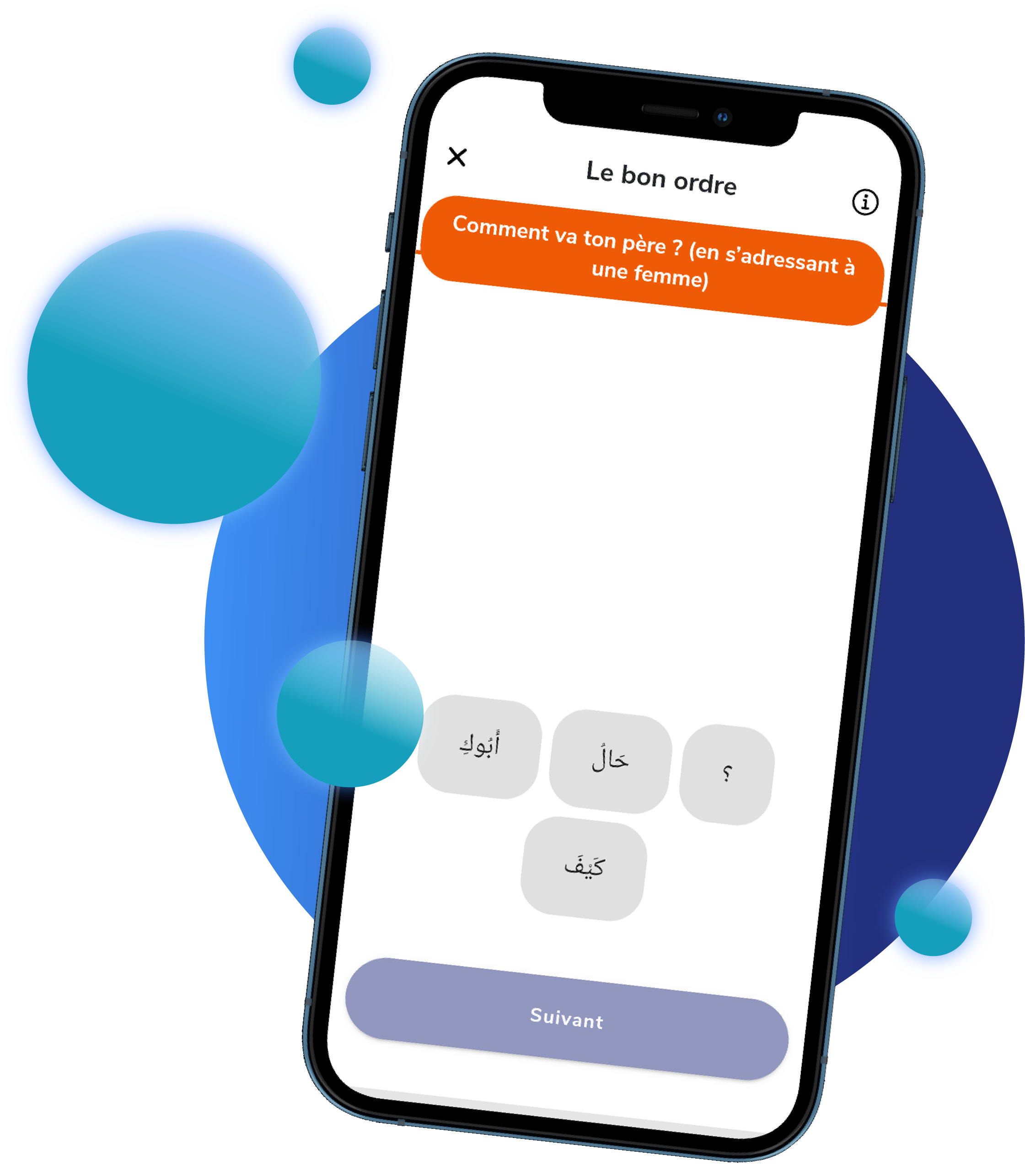
One of the tips for learning Arabic effectively is to start by memorising basic phrases. This practical approach allows you to quickly familiarise yourself with the structure of the language and its everyday use. Concentrate on common expressions such as greetings, useful phrases for shopping, asking for directions, or expressing simple needs. This will not only help you build a useful vocabulary, but also gain confidence in basic conversations. Learning complete sentences from the start is also an excellent way of understanding the context in which words are used, which is crucial to mastering any language.
4. Use applications

Your questions
on learning Arabic
Can I learn Arabic on my own?
Which countries speak Arabic?
How can I learn Arabic at home?
How do you say hello in Arabic?
What's the best way to learn Arabic?
What kind of Arabic should I learn?
Language Club
The blog that tells you everything about languages


Language Club
The blog that tells you everything about languages


All languages to learn
Certification preparation courses available

Toeic
They learned a new language with Globe Speaker





Parfait, la répartition de la formation sur une année me permet de travailler régulièrement et de ne pas perdre en motivation pour la suite.

Franck • 41 ans
Niveau A2 à B2 - Abonnement Premium CPF





L'esprit du site est très bien pensé avec un itinéraire. Cela donne envie d'en savoir plus.

Marie-Anne • 41 ans
Niveau A1 à B1 - Abonnement Premium





J'ai apprécié de travailler sur la plateforme Globe Speaker, autant de fois que je le voulais ou pouvais, ainsi qu'avec Maria pour la partie coaching.

Véronique • 41 ans
Niveau A2 à B2 - Abonnement Premium CPF





Bonne structure pédagogique et bon équilibre entre plateforme et les cours oraux.

Christelle • 0 ans
Niveau A1 à A2 - Abonnement Premium





Plateforme très pédagogique, et adaptée à tous les âges. J'ai vraiment eu l'impression d'apprendre.

Maria • 28 ans
Niveau A1 à B1 - Abonnement Premium





